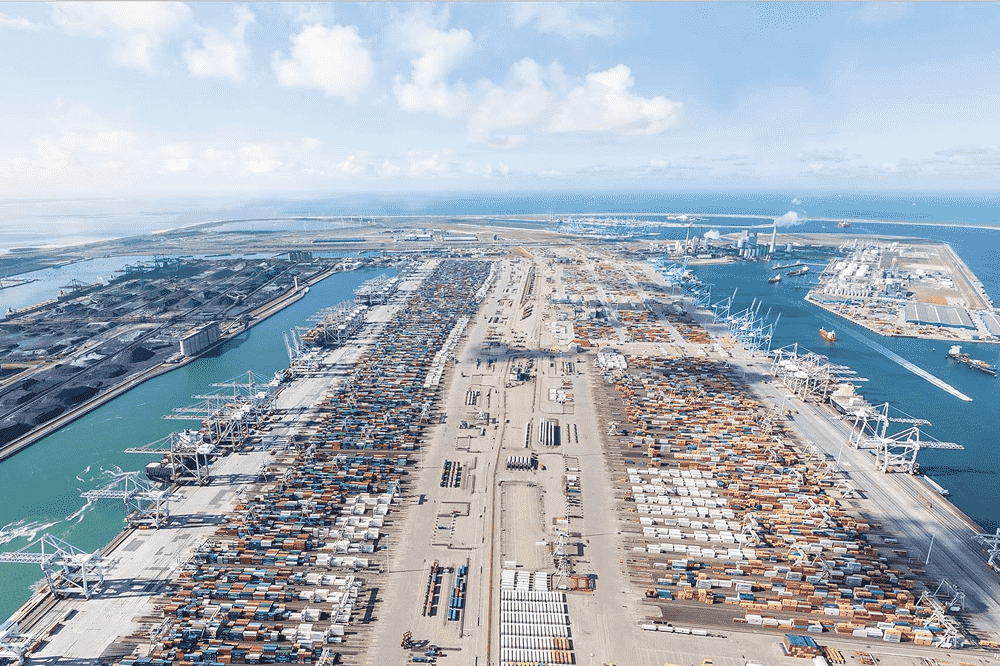Cargo Vessel Baltic Wind Runs Aground in Isefjord, No Pollution Reported
The cargo vessel Baltic Wind ran aground in Denmark’s Isefjord after leaving the navigation channel. No injuries or pollution were reported, and salvage planning is underway.

A 48-hour strike by lashers has disrupted container operations at the Port of Rotterdam, Europe’s largest seaport, bringing loading and unloading activities to a near standstill. The strike began at 15:15 local time on October 8, led by workers from International Lashing Services and Matrans Marine Services, both demanding higher wages and improved working conditions. (gCaptain, Reuters)
Union representatives from FNV Havens said the stoppage demonstrates just how essential lashers are to port efficiency. “Without lashers, the port simply stops,” the union stated, emphasizing that securing and releasing containers aboard ships is indispensable to operations.
Major terminals across Rotterdam—including APM Terminals Maasvlakte II, ECT Delta, and Rotterdam World Gateway—have all been affected. Several shipping lines, including Maersk, have issued advisories warning customers of potential delays and extended berth waiting times.
According to live data from ShipIntel, the waters outside Rotterdam appeared increasingly congested on Thursday morning, with a growing number of vessels at anchorage awaiting discharge (See snapshot below). The snapshot reinforces how rapidly labor action at a single port can ripple through the region’s logistics chain.
The Rotterdam walkout comes amid a wave of labor unrest across Europe’s maritime sector. In Belgium, pilot and harbor master strikes have reduced daily vessel movements at Antwerp-Bruges from roughly 70 to just over 30 ships per day, according to Reuters. French ports have also reported isolated slowdowns linked to industrial action.
The situation underscores a broader pattern of tightening labor conditions across European logistics hubs, as unions leverage high volumes and strong freight demand to press for improved pay and safety standards.
The 48-hour strike could trigger scheduling disruptions beyond Northern Europe as shipping lines reshuffle itineraries or delay departures to align with reopening windows. With terminals congested and landside truck traffic restricted, carriers are bracing for short-term ripple effects through intermodal logistics corridors reaching into Germany and the Benelux region.
As of late Wednesday, negotiations between port labor representatives and management had yet to produce an agreement, raising the possibility of further work stoppages in the coming weeks.